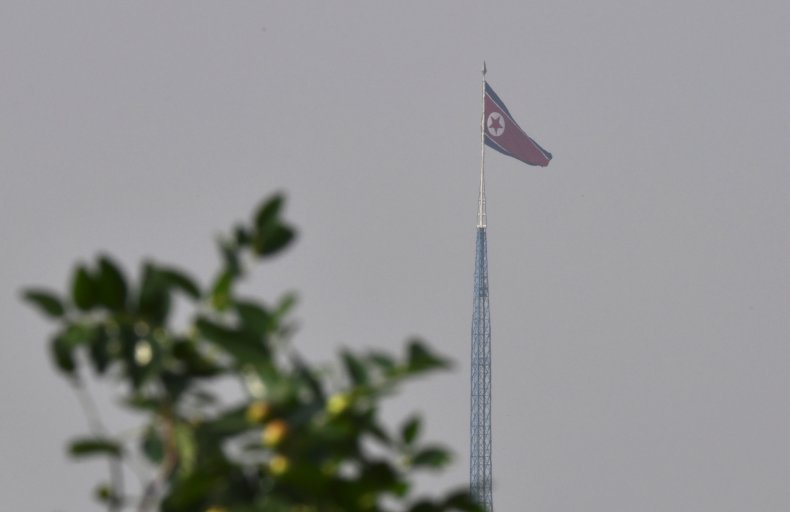It is difficult today—it is difficult always—to speak with clarity about the prospects for peace on the Korean Peninsula. Recent developments have been alternately encouraging and discouraging. On the positive side, communication links between North and South Korea—links that had been severed abruptly by the North—have been restored, and both sides have made conciliatory signals. At the same time, North Korea has continued to test weapons systems and resumed activity at one of its sites dedicated to the production of plutonium.
Amid this uncertainty, there is one constant: the importance of the partnership between South Korea and the United States. The Biden administration, facing challenges on other fronts, has yet to make the Korean Peninsula a top priority, but the president has made clear his commitment to peace and security.
The contrast with the previous U.S. administration is profound. Over the past four years the United States veered between, on the one hand, dramatic public overtures to North Korean leader Kim Jong-Un, and, on the other, hardline tactics. The Biden administration, however, is prioritizing diplomacy and dialogue. This measured approach could bring a long-term solution—and make denuclearization, the main goal of the U.S. and South Korea, possible.
As the governor of Gangwon Province, I live along the 38th Parallel—the boundary that split Korea in half 70 years ago and created a demilitarized zone between the two nations. We feel the impact of this divide every day. Joe Biden, too, saw it firsthand when he visited the DMZ in 2013. From my vantage point, I see that progress will require small steps that emphasize our commonalities, shared cultural experiences and mutual opportunities for economic growth.
After 70 years, we know that things don't change overnight. We agree with a senior White House official who recently told the Washington Post, "The likelihood of North Korea giving up nuclear weapons [right now] is close to zero." Immediate results should not be our goal. Instead, we should move bit by bit, building momentum toward a lasting solution.
It starts by building trust. We need to find common ground between North and South and with other nations that have a stake in the security of the region. This is more possible than we might think.
Shared cultural experiences are one means of bringing people—even adversaries—together. I have been part of these events in the past and have seen the potential they hold. In 2008, for example, North Korea welcomed the New York Philharmonic Orchestra for a performance in Pyongyang. This required extensive negotiations, but it was well worth the effort. After the orchestra delivered a moving and masterful concert, the audience gave a standing ovation—a measure of our common humanity.

Sports, too, promote mutual understanding. The "ping-pong diplomacy" of the 1970s eased a tense relationship between the U.S. and China and proved the power of athletics as a unifier. Many people around the world will recall the opening ceremonies at the 2018 Winter Olympics in Pyeongchang, in my province. Athletes from both North and South Korea marched together under one flag. We hope to replicate this success in 2024 when Gangwon Province hosts the Youth Olympics.
Tourism is another powerful way to build relationships. This is one of my guiding beliefs as governor. I hope we can soon reopen Mount Kumgang, a tourist destination in North Korea just beyond the DMZ. The site, which was jointly operated by North and South, once served as a meeting point for families divided by the 38th Parallel. Likewise, the future construction of an inter-Korean railway will link the North and South and facilitate travel throughout the entire peninsula.
These cultural exchanges are not just about generating goodwill. They also have clear economic value. Political negotiations are often seen as a zero-sum game. But stronger economic ties are generally understood to be beneficial to all parties involved. At a time when many nations—North Korea in particular—are feeling the economic impact of the COVID pandemic, commerce can reduce tensions and fuel progress in other areas.
These, again, are small steps. They will not immediately usher in a new era of peace and prosperity on the Korean Peninsula. Yet, taken together, they provide a start to that journey. They can help both sides develop the relationships, the habits of mind and the sense of shared interests without which there will be no peace. They can set the stage for the difficult conversations we need to have about solutions that both sides can embrace.
This will take time. But I believe we can get there. Just look at Vietnam. Half a century ago, the nation was torn apart by war. Today, while Vietnam continues to be ruled by a single party, it has strong trade relationships with other nations, including the United States.
To those who say this gradual approach is not enough, I reply that grand gestures will likely fail and will not accomplish lasting change. Indeed, when they fail, they are corrosive to the foundation of trust we must build together. Sharing in cultural exchanges and prioritizing economic advancement is the way forward.
After visiting North Korea in 2018, I concluded that the country's rulers were open to reform. I still believe this. And now, with leadership in Washington that is committed to diplomacy, I believe a lasting peace is within reach.
Choi Moon-Soon is the governor of Gangwon Province, South Korea.
The views expressed in this article are the writer's own.
"lasting" - Google News
October 13, 2021 at 05:30PM
https://ift.tt/3FGTOWI
Lasting Change on the Korean Peninsula Begins With Small Steps | Opinion - Newsweek
"lasting" - Google News
https://ift.tt/2tpNDpA
Shoes Man Tutorial
Pos News Update
Meme Update
Korean Entertainment News
Japan News Update
Bagikan Berita Ini














0 Response to "Lasting Change on the Korean Peninsula Begins With Small Steps | Opinion - Newsweek"
Post a Comment